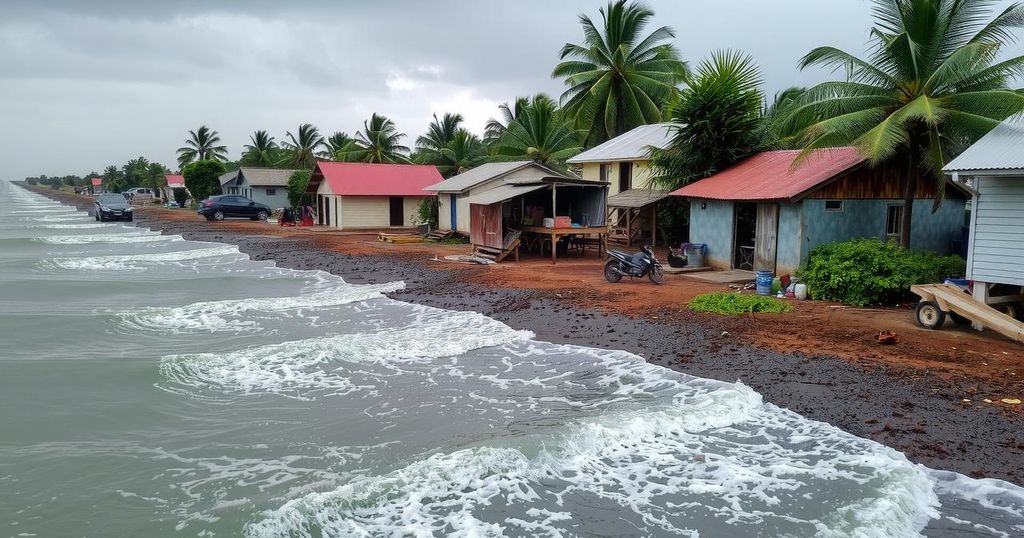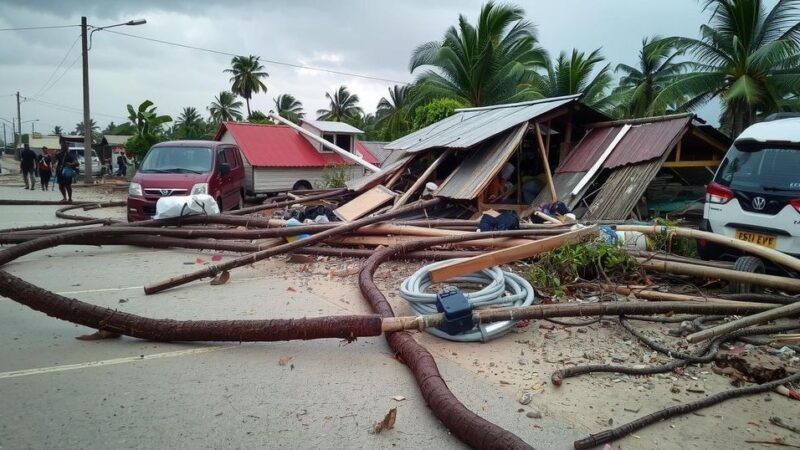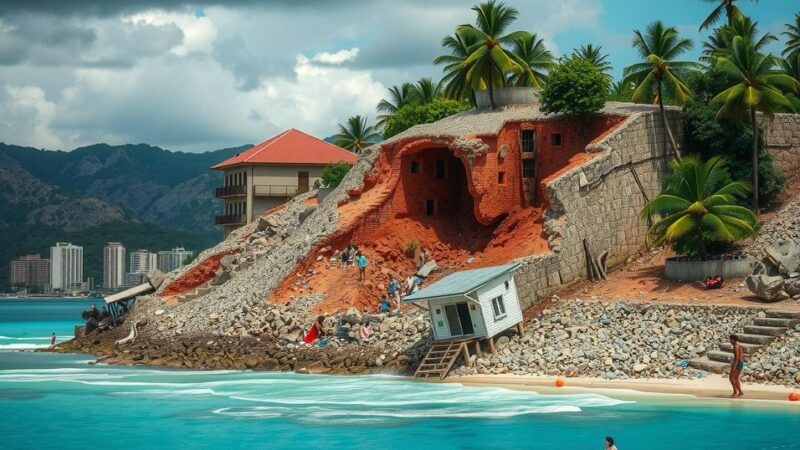The death toll from Cyclone Chido in Mozambique has reached 75 as rescue efforts reveal the extent of devastation in Cabo Delgado, an area already strained by insurgent violence. The cyclone exacerbated existing humanitarian crises, impacting thousands who had been living in precarious conditions. As Mozambique faces increasing natural disasters amid ongoing instability, the need for effective climate resilience strategies is urgent.
The death toll in Mozambique due to Cyclone Chido has risen to 75, nearly double the previous figure, according to government reports released on Friday. The cyclone struck northern Cabo Delgado province, an area already plagued by an ongoing insurgency that had displaced hundreds of thousands. The storm’s impact resulted in at least 69 fatalities and over 740 injuries. Rescue operations are ongoing as workers reach previously inaccessible areas where devastation has been severe.
Mecufi district bore the brunt of the storm’s fury, with widespread destruction of infrastructure and homes, particularly mud and wooden structures. A witness from the United Nations refugee agency remarked on the complete demolition of the region, emphasizing, “What you see is utter destruction.” The cyclone’s high winds, recorded at 115 miles per hour, compounded the existing humanitarian crisis, as many residents were already living in temporary shelters due to the insurgency.
The government has noted that Mozambique, as one of the world’s poorest nations, faces severe challenges exacerbated by climate change, experiencing persistent natural disasters, specifically from storms originating in the southern Indian Ocean. Images from the disaster zone reveal significant damage to essential services, including the maternity clinic in the area.
As Cyclone Chido makes its mark, it highlights a disturbing trend of increasing climate-related disasters coinciding with persistent political instability. The region has seen a surge in extreme weather events, with previous storms like Tropical Cyclone Freddy and Cyclone Gombe also causing extensive damage and loss of life, resulting in the displacement of approximately 140,000 citizens in the past few years.
Cyclone Chido struck Mozambique at a time when the country was already grappling with the adverse effects of a long-standing insurgency in Cabo Delgado province. This conflict, fueled by extremist groups, had forced many residents to flee their homes and live in precarious conditions. Mozambique’s vulnerability to climate change has rendered it susceptible to frequent tropical storms, and the government’s repeated calls for assistance highlight the urgent need for a resilient framework to cope with such disasters. The devastation caused by Chido is not isolated, as the country has previously endured severe weather patterns that have compounded humanitarian crises.
In summation, Cyclone Chido has inflicted significant damage in Mozambique, claiming 75 lives and injuring many others during a challenging period marked by an existing insurgency. The cyclone’s assault on Cabo Delgado province and surrounding areas has compounded the distress faced by families already displaced by conflict. Mozambique’s experience underlines the imperative for effective responses to the dual crises of armed conflict and climate-induced disasters, calling for national and international collaboration to foster resilience in this vulnerable region.
Original Source: www.nytimes.com







